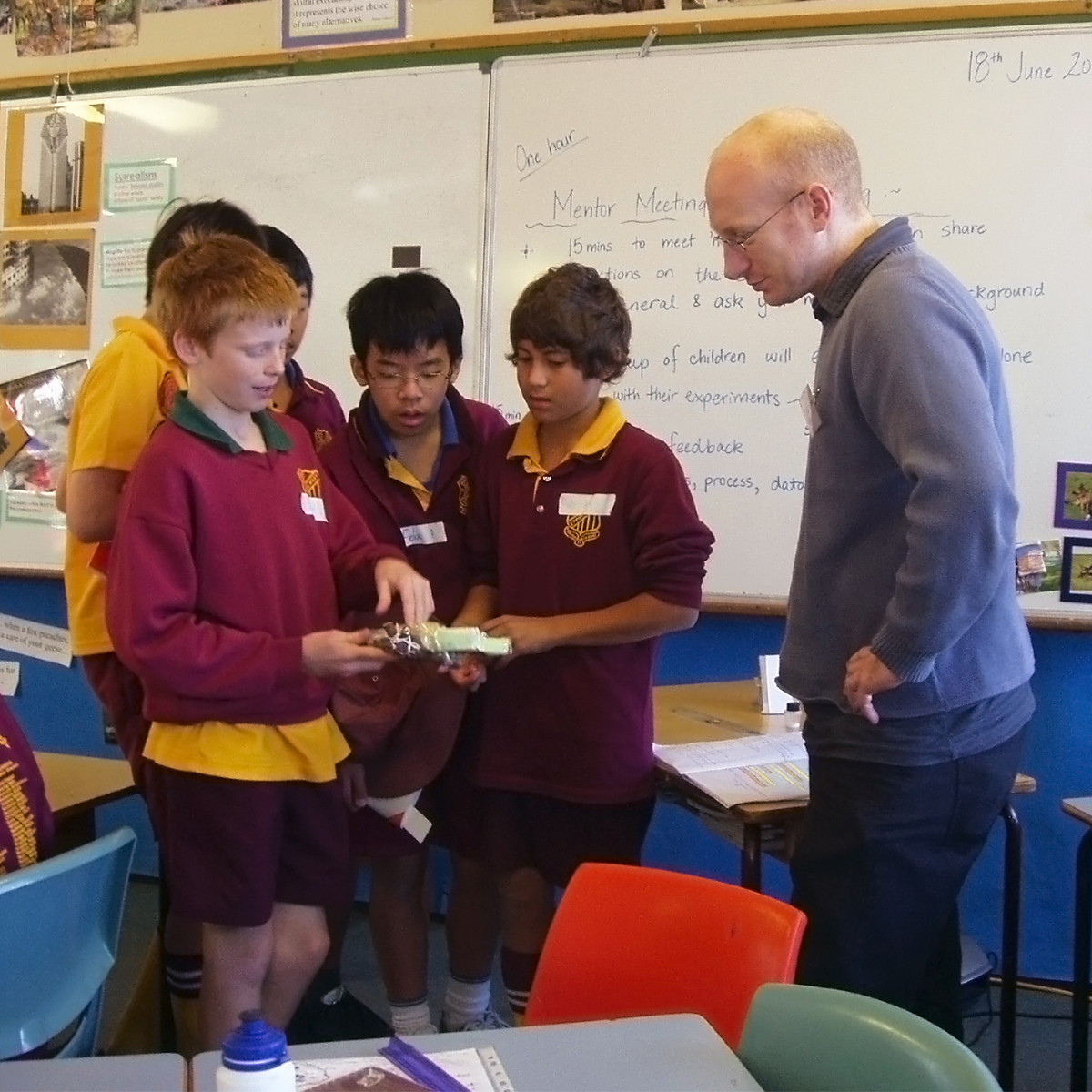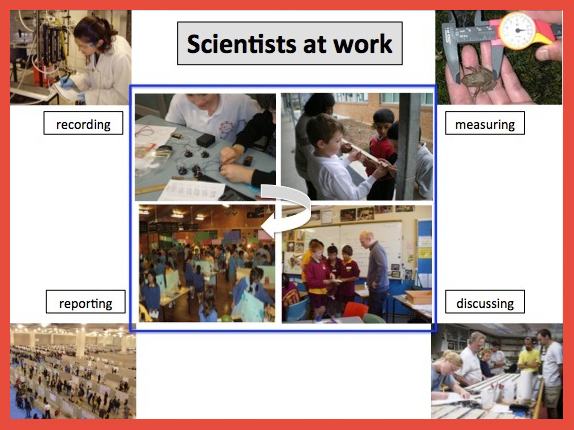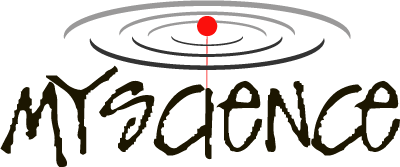Teacher Information
Welcome

MyScience Objectives
- Provide a sustained Professional Learning program for classroom teachers who then facilitate student learning with Mentor support.
- Encourage students to undertake hands-on scientific investigations to solve a problem or question linked to real-life issues. Clear achievement criteria support the student learning.
- Move from structured to open-ended learning experiences for teachers, students and schools.
- Allow students to work in groups and to select areas of personal interest for their scientific investigations.
- Provide students and teachers with specialist content knowledge through Mentors and MySTics (MyScience Trainees in the Classroom, sourced from Year 9/10/11 science students).
- Strengthen links between primary and secondary schools with Year 9/10/11 students working in primary classrooms alongside Mentors.
- Expose Year 9/10/11 students to practicing, enthusiastic scientists, engineers and people who use science in their everyday lives.
- Highlight the importance of Science and Technology education in the school community.
- Encourage school community involvement through the inclusion of local Mentors with science expertise.
Specific Information for Teachers
- As the classroom teacher this is ‘your show’.
- You need to select a broad class theme within which student groups can undertake different, but linked scientific investigations as they work together in a ‘Community of Science Practice’.
- You will be working with your own students (~30), grouped in pairs or threes.
- Each group will be working scientifically to investigate the answer to their own question (one per group), linked to a class theme.
- One of your key roles is to teach the Scientific Investigation process to your students, and have them practise working and thinking scientifically BEFORE mentors or MySTics come to your school.
- Volunteer Mentors or Year 9/10/11 MySTics (MyScience Trainees in the Classroom) with science expertise will provide support to you and your students by visiting the classroom on THREE occasions each lasting 60-90 minutes.
- Each Mentor should be allocated no more than SIX primary students.
- Each MySTic should be allocated no more than THREE/FOUR primary students.
- To find out what to do, use the TOP menu link to IMPLEMENTATION and follow the ‘Teacher Steps’.

Working with Children check
- MyScience mentoring does NOT require a NSW ‘Working with Children Check’ because the number of contact hours with children (4.5 hours) is too low and because the teacher is always present in the classroom.
- If, however, your school DOES require adult (over 18) Mentors to register, they will be following the instructions via the ‘Working with Children Check’ button in RESOURCES.
- As a volunteer the check is FREE.
Teacher Roles and Responsibilities
- UNDERSTAND and COMMUNICATE the Objectives of the MyScience program to students and the school community,
- INCORPORATE MyScience into the school/class program,
- WELCOME and SUPPORT Mentors and MySTics, and discuss how MyScience is being used by the class e.g. class theme, particular students’ needs,
- CONSIDER using online communication methods for between school visits,
- BUILD personal knowledge and understanding of the science underpinning the class theme/students’ topics,
- COMMUNICATE with parents regarding Mentors and MySTics, and the provision of necessary EQUIPMENT,
- TEACH scientific investigation skills to students using scaffolded activities related to the class theme,
- EXPLAIN assessment criteria to students, mentors and MySTics and provide models for planning and presenting,
- SUGGEST to students possible research topics, websites, sources of information directly relevant to the class theme,
- PROVIDE support as students decide on a problem or area to investigate, ensuring they record their ideas in a LOG BOOK,
- ASSESS student work using identified criteria e.g. Young Scientist Awards’ rubric (see Resources).
